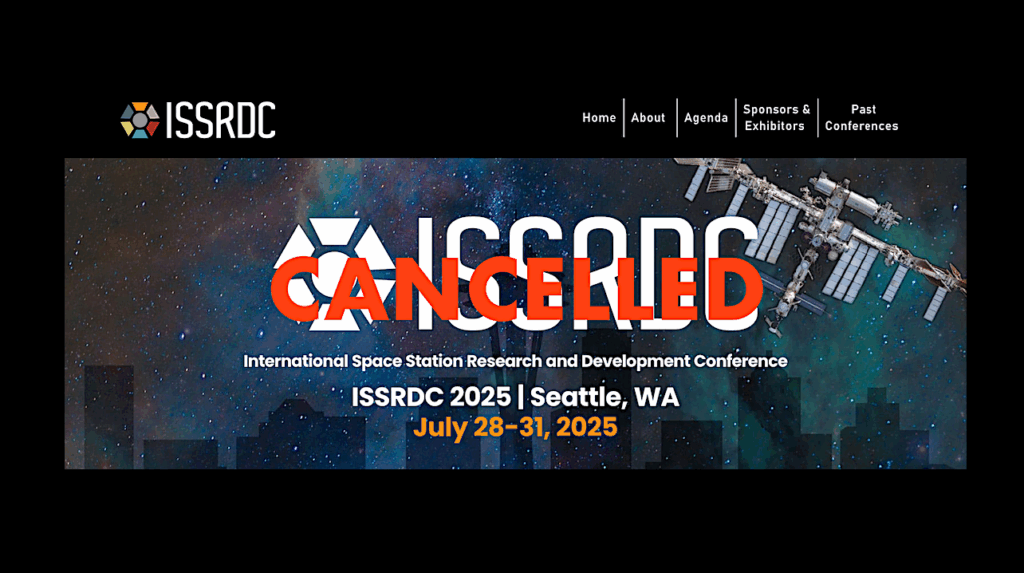Confusion Over NASA's Policies That Ban Certain People
 Email From NASA Administrator Bolden Regarding Chinese Attendance at NASA Meeting
Email From NASA Administrator Bolden Regarding Chinese Attendance at NASA Meeting
“It is unfortunate that potential Chinese participants were refused attendance at the upcoming Kepler Conference at the Ames Research Park. Mid-level managers at Ames, in performing the due diligence they believed appropriate following a period of significant concern and scrutiny from Congress about our foreign access to NASA facilities, meetings and websites, acted without consulting NASA HQ. Upon learning of this exclusion, I directed that we review the requests for attendance from scientists of Chinese origin and determine if we can recontact them immediately upon the reopening of the government to allow them to reapply. Any of them applying and meeting the clearance requirements in place for foreign citizens will be accepted for participation in the Conference.”
Why Has NASA Banned Access to its Partner Saudi Arabia?, (2013), earlier post
“Bolden: “I have ordered a moratorium on granting any new access to NASA facilities to individuals from specific designated countries. Specifically: China, Burma, Eritrea, Iran, North Korea, Saudi Arabia, Sudan and Uzbekistan. While this review is on going I have also ordered that any remote computer access to NASA resources be terminated for those from the same specific designated countries.”
Wolf Letter to NASA’s Bolden Correcting Record on Restrictions Involving Chinese Nationals
“I believe what Mr. Messersmith may have been referring to was a temporary restriction on Chinese nationals that you put in place earlier this year after serious security protocol flaws were brought to your attention by some in Congress, including me, specifically regarding violations at Ames and Langley Research Center. You indicated at the time that security policies for foreign nationals for particular countries of concern would be reevaluated and new accreditations would not be approved until the security process was vetted. However, any restriction against Chinese nationals on NASA centers is entirely an agency policy and not covered under the statutory restriction. Furthermore, it was my understanding that NASA’s temporary restrictions had been lifted after a review of security protocols for foreign nationals at all NASA centers.”
 Keith’s note: It certainly looks like Wolf and Bolden don’t keep each other updated about trivial little things such as banning “individuals from specific designated countries”. No mention of “government” affiliation as being a factor. So what do NASA people do? They follow what their management told them to do. Looks like the people in a position to make the routine decisions on this issue are the last ones to know what the rules actually are.
Keith’s note: It certainly looks like Wolf and Bolden don’t keep each other updated about trivial little things such as banning “individuals from specific designated countries”. No mention of “government” affiliation as being a factor. So what do NASA people do? They follow what their management told them to do. Looks like the people in a position to make the routine decisions on this issue are the last ones to know what the rules actually are.
– Frank Wolf Dumps on NASA For Doing What He Told Them To Do, earlier post









Of course the political administration is back sliding probably the Chinese are using back channels to voice their disgust. If China want’s to earn some points make an agreement to provide emergency support to the ISS if we agree to provide it to their space station or Astronauts if the need arise. I need to see a friendly article explaining how and why China is a nice warm partner to believe that they will not secret off to the moon, or Mars then tell us after they have a base built red flag nationalism and everything, yes we really wouldn’t notice it if it were on the other side of the moon.
If I were a very egotistical government I would establish something very permanent in space made of concrete, and pretty well prove to the world that I own space, scientific research would be second fiddle to the National pride and well the Shock and Awe that while everyone else is in Earth Orbit, I dominate space, the perception is that such a government would see all or know all. Even if said installation was abandoned it would still stand like the wall of China.
If China can do it America will lose it!
Yikes.
“If China can do it America will lose it!“
I wonder if maybe that idea puts too much emphasis on who does something first? Just because one party accomplishes something doesn’t mean it’s pointless for others to do it as well. Space, and even just the Moon, is a mighty big piece of real estate, with plenty of room and resources for all.
I would suggest that the more players there are in any space location or undertaking, the better for all, both in terms of safety and commerce (the Cold War is over). The quality and quantity of life on Earth exploded once subsistence living ended and “manufacturing specialists” became the norm. You make the axes and I’ll make the brooms, then we’ll trade and we’ll have commerce, and we’ll both have more time and wealth. I think it’s reasonable to assume that the same self-sufficient-homestead-to-integrated-village transition can be the key to growth, and survival, in space. There may be prestige or national pride in being the first to accomplish a particular thing in space, but it needn’t be either a point of contention or a reason for others to not work at accomplishing that same thing.
Some things will be done only once or twice in space because that makes sense from the point of view of commerce, but other things will be done many times over because the need or the market will exist. Neither decision should be made on the basis of politics and/or nationalism. In fact, nationalism should be left on Earth and not exported to space; everyone off Earth would be better off without it. Let us export to space only those concepts and attitudes that will facilitate and benefit growth and survival.
“if China Can do it, America will lose it!”
Is less about national pride than it is about regional economies, if China were buying billions of Yuan of American goods then even with market manipulations and criminal fraud by banks, trading companies and energy conglomerates, we could maintain a economy with a high standard of living in the middle class which actually elevates any lower class and provides ladders out of poverty unlike elite international business which operates in tight somewhat closed circles, improving only it’s immediate community. More vendors in small to medium sized businesses is a must, as things are currently designed the middle class is set to take a plunge to meet a global economic standard of living which is much lower. Yes there is the alternative to automate, but as cheap labor increases, the incentive to automate decreases. At some point when food & goods become hard to put on the table and stable jobs more scarce, people become willing to work for less and less.
If Communism has ended around the world, then like Nazism and Japanese Imperialism the war would be ended. While many major battles have been won, and Communism is on the ropes, it still exists. So the Cold War with Russia may be over but the Cold war with Communism is on going. If the Chinese people are allowed to democratize, and are rid of the communistic system that over arches their country, there will likely be more security in trade in goods in both directions.
As far as the division of Labor is concerned while I disdain socialism, and endorse Christianity and faith, and to a certain degree religion, I agree with Smith, De Tocqueville, Thoreau and Marx on just one point, Man has greater potential than to be a machine to produce products for consumption. All of which were covered in my business degree courses. Man should be building machines to solve problems, and once said problems are solved he should be exploring new problems to solve. Using people to do what a machine can do is a waste of their time and capability. This only difference or exception is in instances of Artistry, and Anthropology, and fundamentally historical recreation for educational purposes.
For instance, in the Axes and brooms analogy you used, if I were to make axes, I should be constantly innovating and researching new forms of Axes if not trying to develop a tool that exceeds the Axes capability such as a Reciprocating Saw, or a Chain Saw, researching insects to see how they cut wood is a good example of the proper use of human effort and brain power synergizing things that don’t seem to be related an activity which simple automation cannot achieve.
As has been shown in the technology markets disruptive innovations become more common in higher technology environments where the time between models or basically improvements in design is less than a few months. If an Axe maker is not proactive in discovering new means to accomplish the task of his original tool, and also looking to automate past discoveries, he may be factually overtaken by a disruptive innovation, that provides the same product or service, at less cost in a better way ruining the market for his simple metal Axe. While I still do love a metal hachet or axe, I would not turn down a laser saw, or a hatchet made from Titanium alloy with a gold center of mass for balance and thrust, even better is that instead of dulling when used the Axe could self sharpen due to the molecular deposition process in which the Alloy was laid on the cutting head. Said Axe would maintain it’s engineered efficiency for the life of the user and that would be good product design.
So far as brooms are concerned, one’s goal would be to determine the simplest form of the product while using all the technological tools at their disposal, perhaps a broom could have a polymer or bio glue that reacts to electrostatic charge thus it attracts all particles to it or they stick, then when full the operator flips the charge to empty it.
I’ve done various line jobs and while it’s “efficient” and you make money it’s far from where we need to be as a society considering the tools and technology available.
The final comment I made about building something of concrete, was a nod to Ancient Rome which invented concrete so hard that it was not effectively reproduced until the recent couple of decades. Building a wonder equates to how people react to physical evidence of the execution of plans using technology. Sadly much of the space program is ephemeral, prone to decay and unlikely to last for 1000 years in any recognized form without massive efforts of preservation. Yes from space you can see empty concrete pads and some rusting remains of launch towers, but that’s not quite the same as Rome’s Pantheon or Egyptian Pyramids.
It would be Amazing to put a base on the moon so robust that it would withstand meteor impacts & solar radiation, and so well designed that the carbon scrubbing systems and airlocks would operate forever without maintenance.
Tribalism is a hard habit to kick, and it breaks down to the team, our psychology & biology is hardwired to like a team, we get endorphin rewards for faces smiling at us and for smiling at faces. Modern politics equates to money and influence, but politics itself is as simple as trying to convince anyone to do any task beyond being entertained, or even what entertainment should contain or be, for some research is quite entertaining. Politics & debate and products, they all must exist for people to work together, sure the politics don’t have to be horrible and dishonest, nor do they have to be operated only by super elite wealthy connected people.
In space you have to leverage some of the human instincts and understand that they exist and can be overcome with understanding and effort. Short of reprogramming the biological structure of the brain the concepts and attitudes that facilitate growth and survival are biological imperatives that tend to network towards nationalistic structures. What should be said is that no individual should be allowed such a role of leadership as to be insulated from the real function of it’s supporting society. That was a goal of America, that the Presidents would be real people, not a deluded aristocracy, living in an Island of fiction. The only limit on an American being a President was to be Age, in the hopes that Age equates to wisdom, which unfortunately does not in all cases.
If a policy class or administrative class of people can be prevented then less issues will arise blocking success. If you can’t work and produce something useful tomorrow you shouldn’t be allowed to lead today.
To provide for fantastic growth and stability a society must remove all wealth generation from inhibiting innovation and invention.
Thank you for your detailed and well-considered reply. Obviously I misinterpreted your point about doing something permanent, or more specifically, the reasons behind it.
In general, I agree with the concepts and their purposes as you’ve presented them, but with one qualifier — what you’ve carefully described applies to life on Earth, but I would suggest that there are elements of it which would not apply off Earth, particularly during an early, developmental stage like we’re facing currently. I think that in space, for some time to come, tasks, events and innovations will be (and should be) driven more by real needs than by markets, which are largely more created and artificial than needs. I see this as necessary from both the survival expediency and financial perspectives.
For those industries and other activities that contribute to or support “developing” space but take place on Earth, I believe that what you’ve described is both accurate and essential to maintain, for reasons that are well accepted.
For those activities that take place either in space or on the “borders” of space (border examples: integrating a launch package, done on Earth but for launch into space; TDRS; design/build of a probe or rover), I think needs must be the driver rather than markets. There is, of course, a fine line between “borders” and Earth, and it has been, in my opinion, those activities which straddle this line that have been the most confused and have wasted the most time and money in the past (and now).
In simplified form, I think the real needs should be used to define our goals and our plan for developing space, whereas the Earth-based and “border” market considerations are factors in the implementation of that plan, not drivers for the content of the plan. I agree with the generally supported arguments concerning ROI, business cases, etc., but firmly believe that they are not across-the-board goals, but rather tools to be applied each in its own relevant situations. I see this as just one example of the many cases where Earth-based methods and thinking can not simply be exported, as is, off Earth (mining technologies being another example).
Thanks for the interesting discussion.
Agreed, thanks for your quality participation!
Space will be much different than trying to colonize continents, you will be required to have with your or already sent the tools to create your environment, where as on Earth it’s mostly expected that the resources are available.
Some useful research might be to pick an absolutely inhospitable location, like say some high elevation on Mnt Everest and build a rapidly assembled base with pressurization capabilities.
What I do know is that in the most recent issue of popular science one of their writers proposed turning the whole of the moon into a UNESCO world heritage site, thus putting the bureaucracy of the UN in charge of all moon activities. There is no worse idea than having the UN in charge of what they cannot begin to understand, and impose the regimes of environmental impact from earth to the moon.
I’m quite convinced that if the UN had been in charge of man kind we would still be living in caves, hunter gathering, maintaining the supposed balance of nature. I really hope we get a firm grip on space as a species before some insane populist group determines they know what’s best for everyone and attempt to depopulate the planet for environmental impact purposes. I hope my progeny are well on their way to Mars and out of range of UN or other earth controls (weapons) before the UN makes that vote.
As nuts as that sounds, keep in mind these are the same people who talk about over population and hate speech toward mankind for changing the planet for it’s needs. They seriously believe that ecosystems are static, and the only influence of major change is Man.
It’s like a new religion, and we are approaching something akin to the Spanish inquisition, except this might better be called the Carbon inquisition.
The UN has no enforceable authority over anyone or anything that was not voluntarily handed to it by the participating nations, and it doesn’t include every nation in the world anyhow (13 out of 206 nations have no UN vote). And given that there are seven nations who basically call the shots, it will never be representative of the world, therefore its very name is a misnomer.
The ironic thing when it comes to space issues is that those nations with absolutely no space capability far outnumber those who do, and therefore can, by majority vote, prevent progress by the space nations through an attitude of: if I can’t have it, neither can you. So, everything considered, unless the UN is magically completely made over into something that it’s never been, I don’t think there’s much chance that they’ll ever get practical control of the Moon or any other aspect of space.
What troubles me are the precedents of history. In order to be able to regulate or otherwise control major issues, such as space development and utilization, an entity requires some significant form of “authority” over all of the participants, and historically that has almost without exception been gained by the use of force, i.e., war in one form or another. There is nothing to suggest to me that things are any different today, or will be in the near future. It would be nice to think that we were all past that sort of behavior now, but all one has to do is look at the daily news around the world. And one mustn’t forget that 1) the “bad” guy is always defined as the other guy from anyone’s perspective, and 2) history is still written by the winners.
The only way I can see to avoid the inevitable conflict which will eventually result over the control of space is to methodically and gradually build up an alliance based on: 1) economic self interest; 2) prevention of national conflicts; and 3) long-term species preservation. If, once again, we draw from historical examples, this will require: 1) a visionary to act as a leader and rallying point (or more than one, all of whom are in complete accord); 2) a whole lot of hard currency donated to the cause; and 3) maintaining 1 and 2 for a long-enough period of time that they become self-sustaining and self-perpetuating. And that’s a mighty tall order given today’s economic conditions over most of the planet. Ironically once again, those nations who could contribute a great deal to this effort, in terms of both money and population, are 1) generally ideologically in opposition to the practices of the space nations; and 2) being ostracized from many space and economic issues for reasons of politics and differences in economic practices.
I fear that the question of who “controls” space will, in the long run, be a much harder nut to crack than any of the technical challenges. One thing is clear to me — it won’t be any one nation, nor the UN, who takes the lead and begins to mold a “space authority,” even though the nations will have to foot the bill. What we need to aim for, I believe, is a space consortium, not a space nation. I see this as the only way to balance the requirements of developing and using space with the economic welfare and self-interest of all nations, not just those participating at the outset.
I realize that this all sounds like a very tall order, but we’ve seen in recent years that long-entrenched thinking and methods can be changed once the benefits are understood, and that many sacred cows are no longer quite as scared as they once were, which opens doors to change. Our first step is to find a Martin Luther King disguised as Carl Sagan to lead us through the initial growth stages. That’s a mighty big job opportunity to fill (politicians and economists need not apply).
My opinion alines with yours in many ways, When we look at history it was free enterprise that did the job in the continental USA, trapping and exports of furs made greater expansion into the Americas both interesting and feasible. Each nation sponsored it’s own furrier business. When things start moving it will likely be the same in space, laying claims to specific asteroids that have composition and tonnage that equates to a profit is likely to be the first contentious activity. Who gets paid, and how inevitably regulated the system becomes is determined by the number of groups involved. In the instance of the British Empire, the British maintained the largest global fleet of both fast and heavy war ships. They both maintained order and asserted British claims, so in all likely hood, at some point in time there will be science fiction looking ships with cannons of some nature asserting security for mining operations. Once you have such a formidable opponent in space it’s only a matter of time until there is a response due to perceived to real injustices.
In terms of Bad guys, there still has to be a moral imperative, and the original biblical one established in North America has a better track record than most of the global alternatives, however, being only 250 or so years old we still have a chance prove how foolish and dangerous we can be. Be sure there are bad guys and sometimes they hide in the ranks of the good guys. Bad guys are those who do not value human life, and will enrich-themselves in any manner or form, power, wealth, assets at all costs. The current popular social trend is to erase all those lines, which is a mistake because evil, or basically the happy desire to harm for gain is real. The greatest feat for evil to attain is the acceptance of it’s non-existence. In such an environment evil has no opposition as all activities are morally subjective, and therefor justifiable.
So what I’m saying is that in the end that the material based society that operates on Earth will continue into space, greed, temptation, fear will play a complex role in the psychological composition of those pursing a long term space presence. If the material desires can be resolved, and a people practice self control, like many science fiction authors have postulated, it might be possible to have a global space effort that is not constantly at war with one another, but yet on the flip side there are series that depict an unending war between governments & corporate partners over materials access and wealth/ power & control.
However noble and altruistic the notion, the fact is that we are still humans and most of the complications of our history have not elevated themselves. We must go to space and yet in that realize that so long as there is not a truly alien threat, we are our own worst enemy in the universe. There’s likely a percentage of population in space and a ratio related to wealth that equates to conflict or war, before then things will probably be quite friendly.
I expect that time density of activity, a situation related to singularity where social and corporate activity driven by technological advance is compacted in to larger changes over shorter periods of time will make some things happen faster than the 100’s of years that they happened as North America was colonized and industrialized.
Advocating for societies to establish long term presence in space sounds like a great job, I wonder how many masters and doctorates such a job will require? Who would pay you?
Well said. Upon further thinking, with respect to morality and bad guys, I don’t think I’m being naive to suggest that we perhaps have one positive aspect on our side that equates to hope for the future, and that is the fact of relatively unbridled communication compared to the past. During the Cold War Americans were being told how horrible the Soviet government was and that the citizens of the USSR supported their government’s ideals and actions, while the people of the Soviet block countries were being told the same thing about the American government and people. Both claims were overstated to the point of being fiction, but the people believed and feared.
The internet and the increasingly extranational nature of both the media and industry eventually allowed the people on both sides to learn the truth, which lead to major changes that would have been considered wishful thinking at best only a few years earlier. Perhaps that same fast and open communication can have some preventative effects as well as being corrective after the fact. In support of this idea I point to current relations between the US and China, and what bloggers and commenters are saying on the web. I predict that the Cool War between the US and China (governments) will last a much shorter time and be much less damaging and wasteful than the Cold War was.
In developing space, instant communication will give us more of a clean slate than can ever be experienced on Earth — the trick is to get the fast communication and moral thinking in place in space matters before the “us-and-them” habit of human nature sets in by default. That will require leadership (non-government leadership) and will have to offer people the opportunity to benefit from intelligent self-interest and, I believe, little more. Reasonable hope can be a very powerful and effective tool — but the tool’s operator determines what the tool will create. In this respect, things are the same as when the US was being formed, with the all important difference that the “average” person involved in the development of space will be much more intelligent, knowledgeable, educated and more aware of the lessons of history than were the citizens of 1776. In this case, the best will lead the way instead of the disillusioned and disenfranchised.
I think there is still hope for a better tomorrow.
I agree about how the news and old school investigative journalism really made the difference in bringing down the brinksmanship ship that the governments had been practicing.
We have to keep in mind though that the Governments on the behalf of the people and in many cases beyond the wishes of the people were posturing and making threats, there were many deaths, they just didn’t make it into news, and for the most part history books, from the then undetectable nuclear subs that were positioned within striking distance of Russian targets to a growing arsenal of spy equipment and espionage, the threats were real and you can say actually lead to the space race that got us to the moon, then they all realized that the moon is a terrible place to try to put a nuclear missile base.
Global governments and those with enough power to push the subjective message are racing to keep ahead of open communications, reporters are not doing the kind of investigative research because the news cycle is so short. There is a power struggle that is ongoing, because information can cause damage quickly, just look at Orson Well’s War of the Worlds broadcast. When information is available instantly and it can be made to look real, the threat to the stability of a Nation can be real in terms of Riots, closed markets, and basically panic. Now more than ever such a large portion of the population can be reached by unlicensed individuals, who can spur those people to basically go nuts.
Education and vetting and personal research should be a norm for everyone but it’s really only tiny fraction of early adopters who question anything that is communicated, regardless of it’s source. As such people being educated should have their own plan and not expect that government can or will fix the problem in a time frame that does not leave them to risk. That should start at the neighbor hood and move up into government, instead people are more insular from their neighbors than ever, and you must think how foolish is it to only have a relationship with your neighbor when everything is on fire, exploding, flooding, or some larger threat has occurred. I’ve even heard media propaganda pointing out how your neighbor is likely a criminal and a dangerous individual that could or would turn and kill you over food and water, and some even more radical people go around teaching that as fact!
In 1776 people knew and understood the nature of their environment and the danger of trying to make a “stand alone”, this is why colonial governments continued even after the English governors were no longer around making profits from the peasants and indentured servants. Some of those governments were a compilation of farmers and businessmen, not just wealthy aristocrats or corporate holdings owners. That is what provided for the stable growth of America through plague, famine and war. Government must consist of the people of which it is designed to serve, not from specially trained class that is unlikely to ever earn a production based wage for the rest of their lives. Regulation and legislation should have never been turned into “JOBS” they are not, the are supposed to be means to make employment and sales fair and functional. If allowed the technology will grow to eliminate these issues allowing for transparent verifiable and independent regulation. Lying becomes harder and harder when the technology is capable of sensing the reality before it’s even spoken.
A simple example is someone claims that in this Solar maximum there are no sun spots! So what do you do, do you believe them, do you go to a web site, that you don’t own and that is easily manipulated, or do you use your cheaply acquired Chinese made binoculars mounted to a tripod and project an image of the sun into a shadow and verify with your own senses that in reality there are still sunspots.
This moment right now for the vast majority of Americans is better than it has ever been though-out human history. While people complain and whine about getting more, they don’t fear roving hoards of mongols, and don’t know of anyone who has had a child eaten by a bear, panther, or wolf.
Space is more wilderness than I suspect a modern society as immature as ours is prepared to confront, the sum average of our whole American society being that of an upper teen. Until it gets real, as in the Chelyabinsk meteor, and that would have to happen over multiple American cities, for people to realize that standing on a rock hurtling though a galaxy circling a giant black hole is not safe. That ecosystems and environments are not safe, and can never be held static for eternity.
The better hope for tomorrow comes in people learning that it’s more important to grow outsides of the confines of this planet, that no government can provide them ultimate security, and that there is not an environment better for human life than one designed by human life for it’s needs, which of course means those needs to be inclusive of those things that make human life enjoyable and prosperous.
Which are from a historic perspective, visually cinematic, somewhat organic friendly balanced with sturdy and durable, and fundamentally not toxic to biological systems.
Like in this situation with the
Banning of a social group do to the real effects of their leaderships planned espionage acts, we cannot ban such behavior, but we can move so quickly and innovate at such a pace that it makes it unrewarding to behave in such ways open source can do that. If proper participation is the greatest reward, and theft only ends up getting you useless costly junk then the trend will be for the positive outcome for all participants. In that way it requires US to change and move away from bureaucratic bungling, and overly drawn out time tables for completion of projects. We will have to move in the opposite direction of granting eternal intellectual property and copy & patent rights, because that only spurs greater theft and stagnation, which any sane society would ignore and innovate around.
I read through your latest post several times, making notes, and then stopped, realizing that I was on my way to creating an overly long essay. I think we’ve reached the point where we’ve agreed on the principles, but we’re going to end up debating the details. In large part this, I think, is because you’re (I’m assuming from context) an American while I’m a Canadian. Even the specific location (city/town) of where we’ve each grown up, or lived the majority of our lives, is going to have shaped our perspectives and attitudes a little differently.
If you’re agreeable, I think we should let it rest here, having agreed on the basic consequences of human nature and how they will likely affect our transition into space. I suspect that to take it any further we’ll end up typing more and more words trying to communicate ideas of lesser importance in the overall picture. The big picture that we’ve already laid out represents, by itself, a major hurdle that we will have to overcome before any of the more detailed challenges become immediate. Our task now, I guess, is to try to infect other people’s thinking with this same big picture, with the hope that perhaps one or more of them will envision solutions, or partial solutions, that in turn can be communicated onward.
Since you began this discussion, I invite you to have the last word and sum it up for others who may have been following us.
Thanks again,
Steve
PS: I’ve long been a fan of Tesla; I once dubbed him The Man Who Invented Just About Everything.
Agreed
and Tesla was amazing, no matter what anyone says that guy gave up his whole life to inventing, choosing not to have a wife or family so that his entire focus was on inventing. Truly, Tesla’s inventions were his children.
Now Wolfe is revising history and claims he had nothing to do with it: “However, any restriction against Chinese nationals on NASA centers is entirely an agency policy and not covered under the statutory restriction.” This is absurd. Wolf inserted language into the NASA appropriations bill that threatened to slash the NASA budget if NASA collaborated with China in any way.